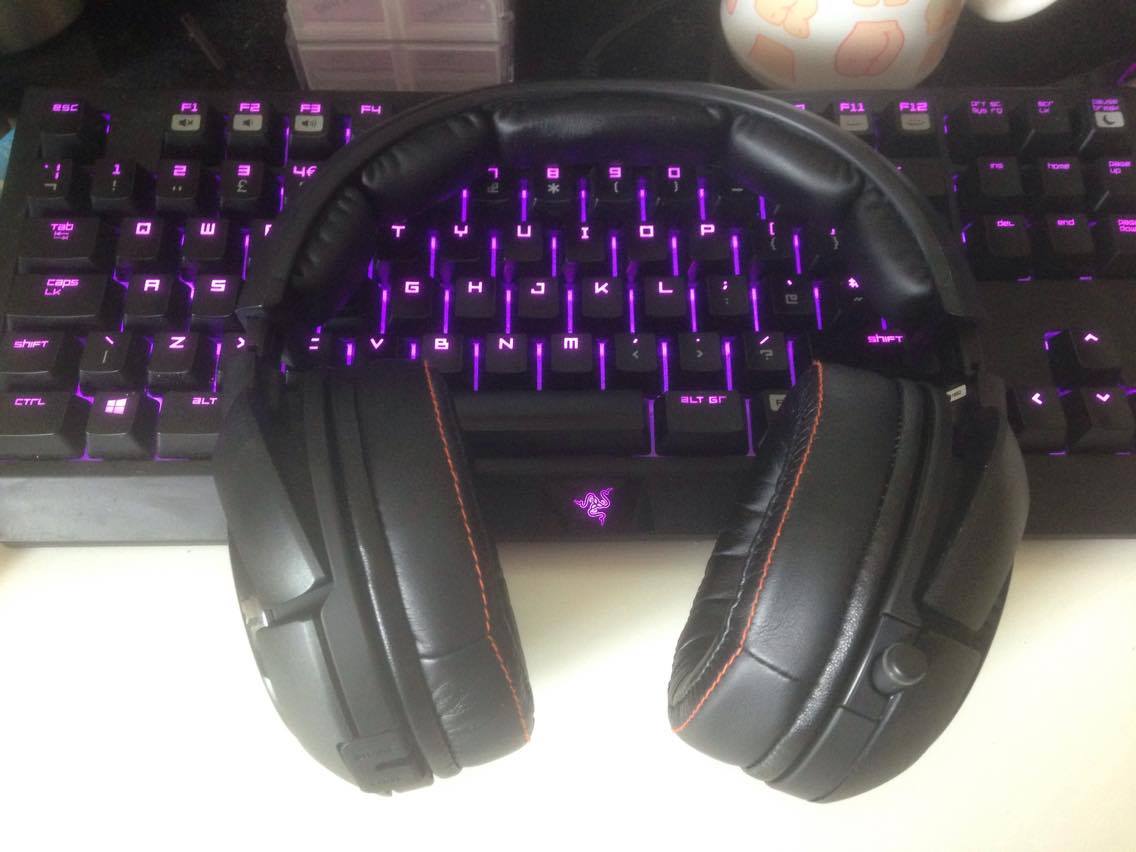Excellent sound quality, poor comfort and volume
The SteelSeries Siberia 800 wireless gaming headset is, by a wide margin, the most expensive gaming headset I have ever owned, and with that comes a set of expectations. It’s hard to try out a pair of headphones retailing at over £250 and not compare them directly to every cheaper headset you’ve used in the past.
While it’s in certain regards the best gaming headset I have had the pleasure to use, it also has several drawbacks when compared to its significantly cheaper competitors. Those drawbacks are not huge, but they weigh heavily on my mind when trying to recommend such an expensive headset.
With that in mind, how you feel about it is largely going to depend on what your priorities are in a wireless gaming headset.

Product: SteelSeries Siberia 800 Wireless Headset
Manufacturer: SteelSeries
Input: One USB 2.0 Port
MSRP: $299.99/£249.99/€349.99
In terms of overall design, the Siberia 800 is a stylish, understated gaming headset. It has a largely sturdy matte black plastic frame, and the outer ears are glossy black with the SteelSeries logo emblazoned in silver upon them. They don’t immediately stand out as gaming headphones in day-to-day wear, and also avoid drawing attention to themselves as an expensive piece of kit.
One problem was with the ear cups, which feel far too shallow to be comfortable for long. After three or four hours of wear I became aware of the pressure where my ears were resting against the plastic on the inside of the ear cup, and I ended up having to temporarily remove the headset in order to get comfortable again. While this may not be a deal breaker for most, the fact other, cheaper headsets have overcome this issue with superior ear cup depth makes it feel like a considerable oversight here.
The headset features a dial for controlling volume (which only works when being used wirelessly, not when used on a wired connection to a phone or something similar), as well as a single button that’s used to control both the power and the microphone mute status. A quick tap to mute and unmute the mic, or held for a few seconds to turn the headset on and off.
The microphone features a small red light strip that allows you to see at any time if the microphone is live or muted, which is a very useful addition.
The headset also features a pair of ports, a share port for daisy-chaining headsets (that I eventually worked out was also for wired connections to phones and similar devices) and a chat port, for consoles that require wired access for microphone usage. The rubber covering this pair of ports feels disappointingly cheap and flimsy, barely feeling secure once pushed into place. I was highly tempted to just rip the small rubber cover off entirely, which is not a good design or manufacturing sign on a high end product.

In terms of overall audio quality, I was very impressed with the Siberia 800. Over the course of a week I’ve tested it with every gaming genre from first person shooters to third person action titles on both PC and console, as well as throwing a handful of surround sound-enabled movies and songs at it, and I never had anything negative to say about how it handles directional and dynamic audio.
It handled deep, booming explosions and high treble notes equally well, separating spoken voice from music and sound effects superbly. Directional audio was always accurate, and I could not have asked for a better wireless surround-sound experience.
There is, however, a problem with the audio: it’s overall volume. As someone who often puts their headphones up near to uncomfortably loud levels to drown out other sensory cues, I felt at times that the 800’s upper range limit was a little too low compared to other headsets on the market.
The quality of the microphone is good enough for in game voice chat, but not for podcasting or anything similar. As is standard for gaming headsets, it has a microphone that only seems competent when layered with other sources of audio.

The transmitter box (which requires mains power to run and is the means of charging the headset), features USB, optical in, optical out, and headphone jacks for managing the various sources of audio you may want to plug into it. The front of the box features a display and buttons which can be used to tweak audio profiles, inputs, surround-sound setup and other aspects of the headset while remaining in-game.
Having a larger transmission box than most wireless headsets, I somewhat expected to have a better range of movement before connection was dropped. Unfortunately, there was little-to-no increase in range compared to the USB dongle solutions on other headsets, but it did maintain directional audio quality right up to the edge of its coverage.
However, the biggest pro of the wireless transmission box is to do with battery charging. It ships with two batteries, each with roughly twenty hours of battery life. But the wireless transmission box features a slot on the side in which the spare battery can easily be recharged. This easy battery switch-out system meant I used the headset in wireless mode far more consistently than other wireless headsets I have previously owned.
Overall, the Siberia 800 is a fantastic wireless surround sound headset, so long as you don’t mind poor mic quality and ear cups that are a little uncomfortably shallow during long sessions. It’s an expensive headset, but one that delivers on high quality wireless sound above all else. It’s just a shame there were notable omissions in areas cheaper headsets are doing better in.
[This review is based on retail hardware provided by the manufacturer.]


